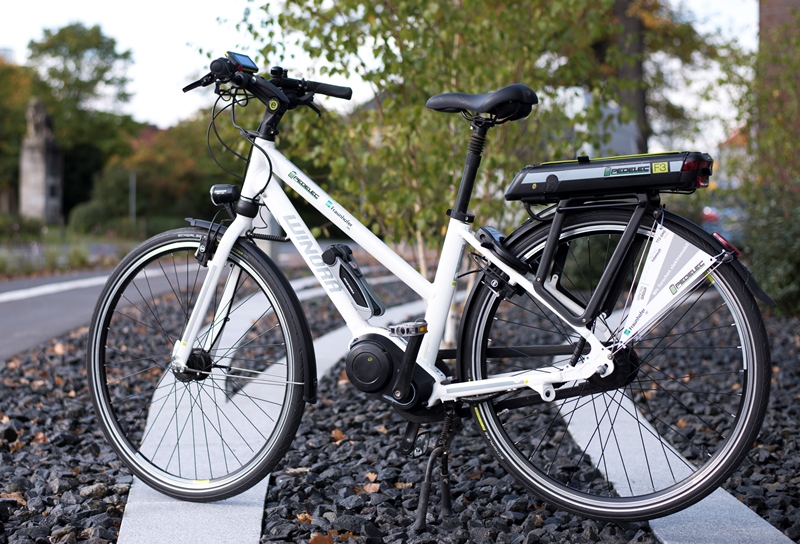PEDElEc - Testing for better e-bikes
»Electro-mobile« bicycles are gaining in significance and popularity, especially with people living in or near cities. While only approximately 24,000 electrical cars are registered in Germany, figures of the ADFC bicycle club show that already some 1.6 million pedelecs (pedal electric cycle) roamed the streets of Germany in 2014. The market for low-effort electrical bicycles is booming. But neither long-term experience nor reliable data are available regarding the usage patterns of electric bicycles and batteries at realistic conditions of use.
This is a shortcoming that bothers not only the users, but also the bicycle manufacturers and suppliers of battery packs. These unknown factors are the focus of an investigation of the Fraunhofer ISC in cooperation with partners from industry and science in the scope of the project titled »PEDElEc – Pendler-eBike Dauertest mit elektrischen und elektrochemischen Untersuchungen« (Commuter e-bike long-term test including electrical and electrochemical tests). Twelve staff members of the Fraunhofer ISC have been cycling to work each day since October 2013 for the purposes of this project.
Funded by the Bavarian State Ministry for Economy, Infrastructure, Traffic and Technology, this project is the first known field test of pedelec batteries that is implemented in a cooperation with partners from research and industry. This research approach focuses on the pedelec as a commuter vehicle and on the optimization of the battery for cyclists meeting this profile. A total of 19 test commuters from the Fraunhofer ISC and the municipal administration of Bad Neustadt an der Saale use pedelecs from Winora-Staiger GmbH daily to get to their workplace. The Winora pedelecs used in the field test are standard bicycles fitted with special data loggers.
